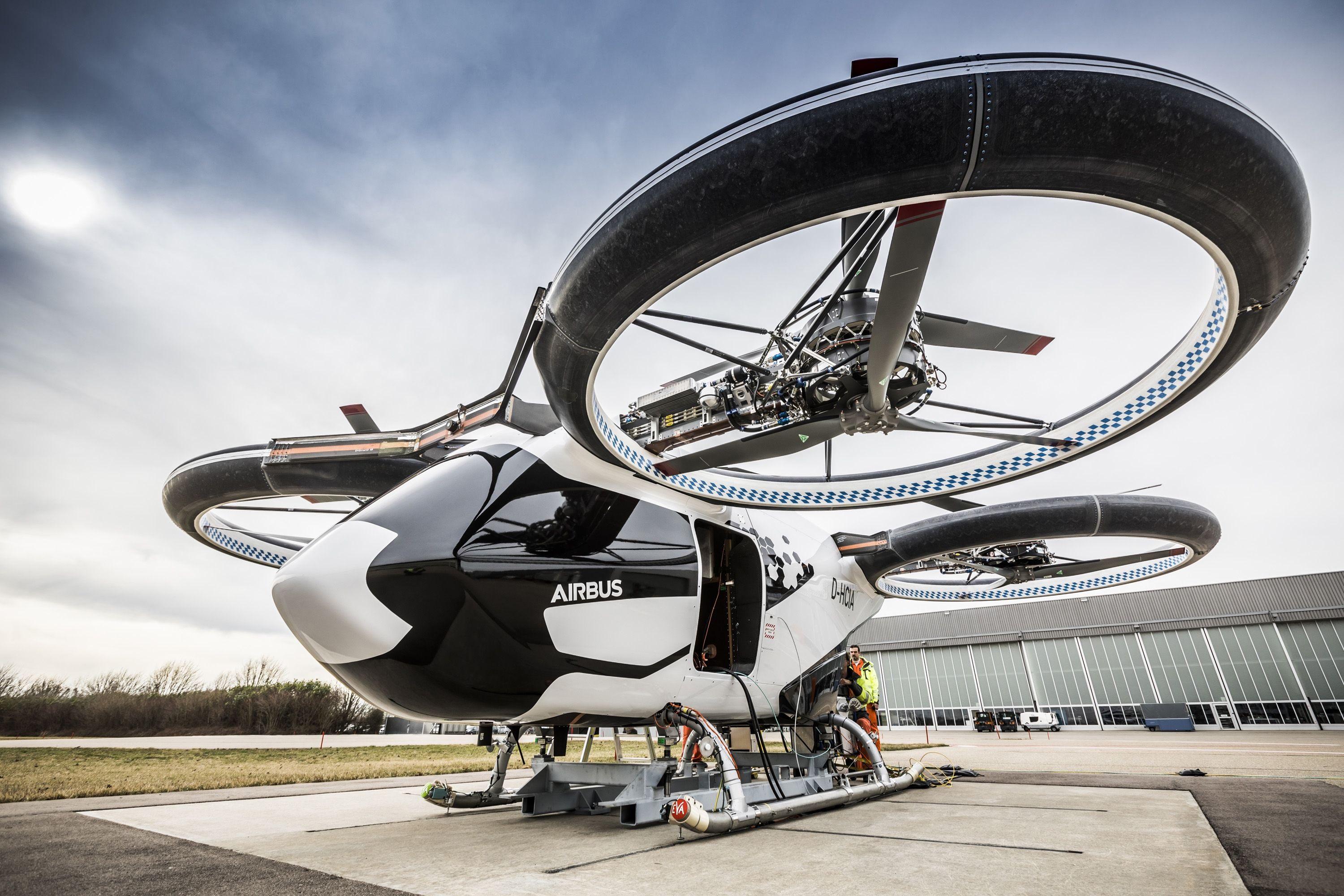
Five decades ago, Airbus played the advanced technology trump card to enter the commercial airliner business. Now the company is playing that card again, though this time for very different reasons.
In the new era of “flight shaming” and increasing environmental pressures, Airbus believes sustainable growth is equally as important as product development and market share. As a result, the company that introduced civil aviation innovations such as fly-by-wire, composite primary structures and the two-crew flight deck is now turning to a new raft of greener aerospace technologies – some of which will be on display at the Singapore Airshow.
Ranging from advanced new aircraft concepts and hybrid electric power demonstrators to zero-emission electric vertical takeoff and landing (eVTOL) designs and delivery drones, the broad scope of the innovations on show illustrates the company’s holistic approach to the problem. The effort is led by Airbus chief technology officer Grazia Vittadini who in 2019 said, “My dream is to have Greta Thunberg [the Swedish teenage climate activist] step onto a zero-emissions Airbus aircraft.”
As part of the drive, Airbus and Rolls-Royce have begun modifying a BAe Systems RJ100 airliner into a flying hybrid-electric demonstrator under the E-Fan X program. The 2.5-MW generator, which will be part of the largest electrical power system yet to take flight, was run for the first time in August at Rolls-Royce Electrical Norway’s Trondheim facility. The unit will be integrated with a Rolls-Royce AE2100 turboprop from a Saab 2000, which will be mounted in the rear fuselage of the RJ100.
The complete turbo-generator will provide electricity to a battery pack mounted under the cabin floor and a Siemens SP2000 electric motor that replaces one of the aircraft’s four Honeywell LF507 turbofans. The motor will power a fan from a Rolls AE 3007 mounted in an inboard nacelle.
Airbus is responsible for the overall integration of the hybrid-electric propulsion system into the aircraft and the system’s lithium-ion battery pack as well as the 3-kV AC/DC distribution network, harnesses and power distribution center. Airbus and Rolls are collectively responsible for thermal management and the control architecture.
Studies of a new generation of zero-emissions eVTOL aircraft meanwhile continue for the emerging urban air mobility (UAM) market. In 2018 these became more formalized when the company grouped its experimental eVTOL work with other urban mobility projects, including the Skyways delivery drone and Voom on-demand helicopter service.
Under the new Airbus Urban Mobility unit, the company is using data from flight tests of the demonstrators to plan its next moves in the sector.
Airbus Helicopter’s ducted-rotor, four-seater CityAirbus electric UAM demonstrator continues flight tests in Germany while the company’s single-seat Vahana autonomous eVTOL concept vehicle, developed by Airbus’ Silicon Valley outpost, A3, completed its flight test program in November. Powered by batteries, the tilt-wing Vahana achieved speeds up to 100 kt. and made a flight lasting 20 min. and spanning a range of 27 nm.
Drone development also continues to accelerate, particularly in Singapore, where recent shore-to-ship delivery trials have been performed with a 4-kg-payload Skyways vehicle. Tests of the drone, which navigated autonomously along predetermined aerial corridors to vessels up to 3 km from the coast, form part of a wider program with the Civil Aviation Authority of Singapore (CAAS) and Wilhelmsen Ships Service, an international maritime logistics company. Airbus Skyways says the automated system saves up to 90% in delivery costs and up to six times higher delivery speeds than with boats.
Further off into the future Airbus is also exploring new and sometimes radical configurations that make the most of advanced propulsion systems and aerodynamic efficiency. The company is keeping one such new concept demonstrator, a blended-wing vehicle dubbed the Maveric, under wraps for now but all will be unveiled at the show tomorrow.
